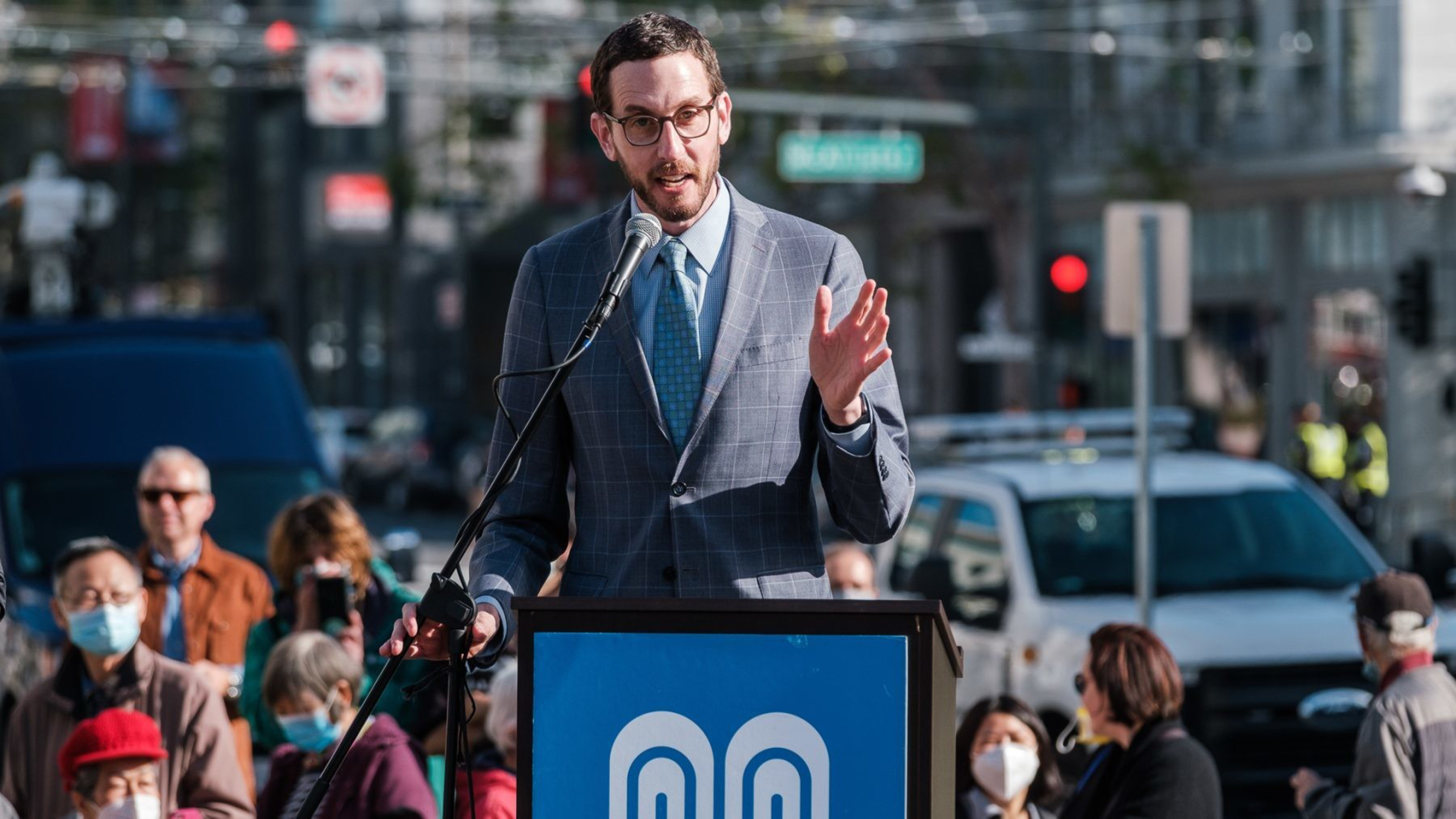Tuesday’s San Francisco Board of Supervisors meeting came with a surprise twist at the end as a resolution in support of State Senate Bill 532, which would raise Bay Area bridge tolls by $1.50 over the next five years to help fund struggling transit agencies, was kicked back to committee.
Supervisor Shamann Walton, who represents the Bayview and other southeastern neighborhoods, made the motion to send the resolution back to the board’s Land Use and Transportation Committee. Supervisor Connie Chan, who represents the Richmond District, also supported the move.

The resolution is nonbinding, but Tuesday’s action nevertheless signals pushback against the toll hike bill, sponsored by state Sen. Scott Wiener and transit advocates to save local transit agencies like BART and Muni from a post-Covid “fiscal cliff.”
Walton cited the potential negative impacts of a toll hike on low-income people who rely on the bridges to get to jobs or otherwise.
“I am in support of this bill, but it definitely warrants a conversation in committee due to negative impacts on low-income communities, communities of color and people who are struggling,” Walton said Tuesday. “I think that the community should have an opportunity to learn more about its effects.”
Ironically, the bill had already garnered support from the San Francisco County Transportation Authority’s board—whose membership is the same as the Board of Supervisors.
The transportation authority’s board voted 7-1 to support SB 532 at its July 11 meeting, with Chan opposed and members Rafael Mandelman, Hillary Ronen and Ahsha Safaí absent.
Sending the resolution back to committee means that the full board likely won’t be able to weigh in on the bill until it returns from recess in September, by which time the Senate vote may have already taken place, something Mandelman pointed out Tuesday.
“I guess I would be curious what the expectation would be in terms of what might be presented at a committee hearing on this, assuming it’s still live when we come back in September,” Mandelman said.
Meanwhile, Chan reiterated her opposition.

“I continue to not support the bridge toll increase … a lot of essential workers do come to San Francisco, not just through public transportation but by driving as well, [and the] bridge toll is going to be burdensome financially for many.”
Chan also referenced remarks made by San Francisco Chief Economist Ted Egan in a July 6 San Francisco Chronicle interview (opens in new tab), where he said that raising bridge tolls “could exacerbate the problem of Downtown.”
The opposition from Chan and Walton, or at least his constituents, also reflects the historical transportation patterns of their districts: Richmond dwellers continue to prefer driving, and Bayview residents maintain their community is still underserved by transit.
Both Walton and Chan were also on the opposing side of another contentious issue that pit transit riders versus car drivers. That was last year’s successful campaign to permanently close John F. Kennedy Drive in Golden Gate Park to automotive traffic.
SB 532 would hike the toll for most regional bridges by $1.50 over five years, raising up to $900 million in lifeline funding for area transit agencies facing post-Covid “death spirals,” where service cuts further depress ridership and revenue in a cycle of diminishing returns.
San Francisco Municipal Transportation Agency director Jeffrey Tumlin has said that the fiscal cliff his agency faces in 2025 would necessitate cutting up to 20 Muni bus system lines as early as this summer.

SB 532 sponsor Wiener, responding to Tuesday’s events, told The Standard that his office was “already working to include equitable tolling measures in the bill, and we’re looking to include more. I’m confident we’ll be able to address the concerns raised by [Chan and Walton].”
He added, “We can all agree that the real equity disaster would be to allow public transportation in the Bay Area to collapse, which is the scenario we introduced SB 532 to prevent.”
